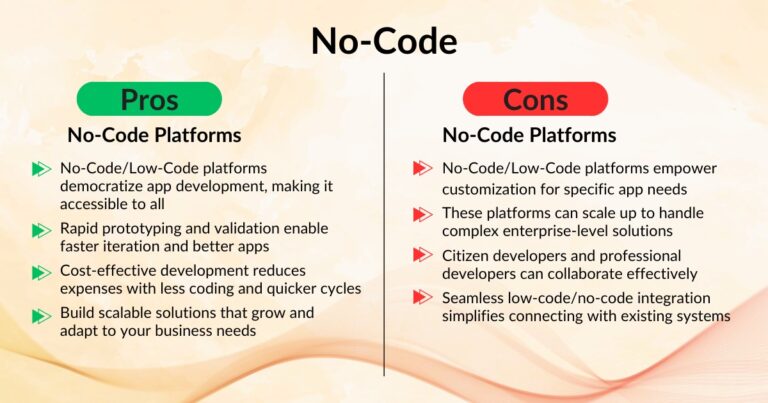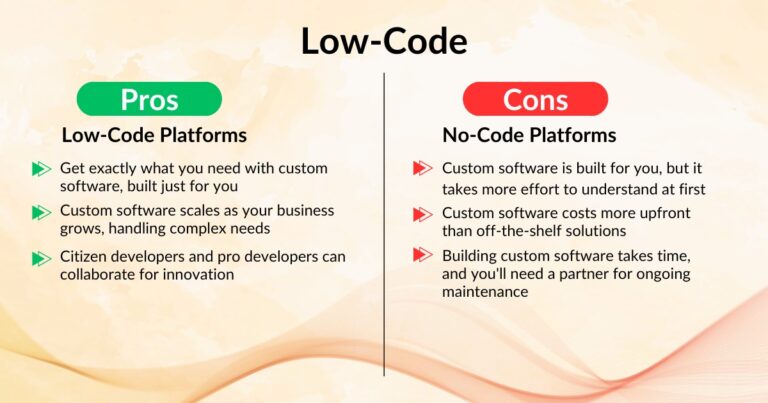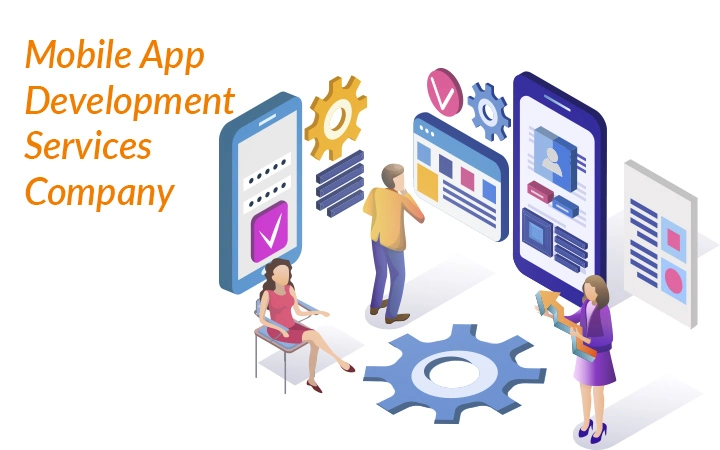In the ever-shifting world of mobile app development, No Code Low Code platforms are revolutionizing how businesses and individuals build apps. These innovative tools empower non-technical users to create sophisticated applications without extensive coding knowledge. By 2024, the No-Code/Low-Code ecosystem has matured.
No Code and the Low Code platforms have become a beacon of innovation allowing individuals as well as organizations to build fully functional apps without typing a single line of code. These rely on visual interfaces, intuitive workflows, consisting of drag-and-drop components, making app development accessible to more people.
1. Appian provides a no code integration platform for building enterprise-grade applications.
The Appian Platform: This comprehensive offering from Appian is considered to be one of the leaders in no code low code platforms. It provides all the tools needed to create enterprise-ready apps featuring strong integration capacities, scalable architecture and reliable security measures required by various industries like healthcare, finance, and government.
2. Bubble: No-Code is now a popular trend among many entrepreneurs as more and more people adopt the use of Bubble has become very famous in the low code and no code platforms community because it allows users to build mobile and web apps with ease. It offers an ideal platform for startups, entrepreneurs and small business enterprises that would like to develop their ideas quickly through its visual programming interface and wide range of pre-built components.
3. Zoho Creator: Part of the Zoho ecosystem empowers users to build custom mobile apps for iOS and Android platforms. It provides a robust app builder toolset, scalability options and seamless integration with other ZOHO products, making it a favorite choice among organizations looking for easy-to-use low code mobile app development tools.and
Low-Code Platforms: Bridging the Gap Between Coding and No-Code
While No-Code platforms cater to non-technical users, Low-Code platforms strike a balance by offering a blend of visual tools and coding capabilities. These platforms enable developers and citizen developers to build applications more efficiently, leveraging pre-built components, scripting or code customization.
1. OutSystems: OutSystems is one of the leading low code development platforms, known for its powerful development environment and robust application lifecycle management capabilities. It caters to enterprise-level organizations, enabling them to build and deploy complex applications across various platforms, including mobile.
2. Mendix: This is an organization that has acquired a reputation for its user-friendly low code development platforms, which enables professional and citizen developers to collaborate in development. Whether a company is big or small, this versatile tool can be applied through its visual modeling tools, wide range of connectors and native low code mobile app development capabilities.
3. Microsoft Power Apps: The Microsoft Power Platform features Power Apps as a part of its ecosystem. This solution allows users to build mobile and web applications without requiring extensive coding knowledge. Organizations already making use of other Microsoft products like Power Automate or Power BI would find it quite appealing due to its proprietary no code integration platform with these systems.
Comparative Analysis: No-Code vs. Low-Code
While each of them has some advantages of their own kind; they are very different from one another, therefore they are suitable for various usage situations.

No-Code Platform Pros:
• Accessibility by non-techies
• Development speed and prototyping
• Affordability in terms of upfront costs and learning curves
• Simple to moderately complex applications are supported
Cons
• Low adaptability and customization options
• Problems related to reliance on a specific supplier
• Difficulties in scaling complex application designs

Low-Code Platform Pros:
- Increased flexibility along with customization options
- Scale up complex or enterprise-level solutions
- Collaboration between citizen developers and professional developers
- Low to No code integration platform with existing systems and databases
Cons
• Steep learning curve for non-tech users
• More expensive upfront, longer development time
• Risk of technical debt and maintenance issues
Real-life Examples and Case Studies
Several industries have adopted no code low code platforms successfully in recent years. For instance, the healthcare industry has employed Appian to develop secure, regulatory-compliant patient information systems that streamline processes while improving patient care. Retailers are able to take advantage of the Bubble platform, which enables them to launch e-commerce sites at a rapid pace due to market shifts.
On the other hand, OutSystems has made it possible for businesses to create mission-critical applications like supply chain management systems and Customer Relationship Management (CRM) solutions. Furthermore, Mendix has been behind the invention of low code mobile app development apps that allow technicians access real-time data so as improve operational efficiency.
Conclusion and Recommendations
The decision whether to choose no or low code platforms depends upon several factors including but not limited to specific needs, resources as well as long-term goals. When seeking low code mobile app development that is both agile and cost-effective, businesses have to evaluate them subjectively, and then make a choice between the two platforms.
For companies in search of quick prototyping, low coding requirements, and cost-effective solutions for straightforward or moderately complicated applications, no code platforms like Bubble, Zoho Creator and Appian can be ideal options.
Conversely, low code development platforms such as OutSystems, Mendix, and Microsoft Power Apps are more suitable for businesses with more difficult demands, larger development teams and focus on scalability and customization. These platforms are highly flexible as well as provide for a better low to no code integration platform thereby allowing enterprises to build solid business applications.
Irrespective of the chosen method it is important to think about aspects like vendor reputation, community support, platform maturity levels and long term roadmaps in order to ensure a sustainable future-proof solution.
With the rapidly changing face of mobile app development industry low code and no code platforms have become empowering forces which allow businesses or individuals to innovate quickly and iteratively to deliver a new generation of applications.
Where does your organization stand in adopting this game-changing technology? Take the next step towards transforming your product development journey with these revolutionary platforms! Contact us today to learn more about our services, and embark on a path to success.
Motivity Labs is a leading digital engineering services company with offices in India and USA. We help companies accelerate their digital transformation journey across various stages of digital adoption and help them achieve market leadership.



